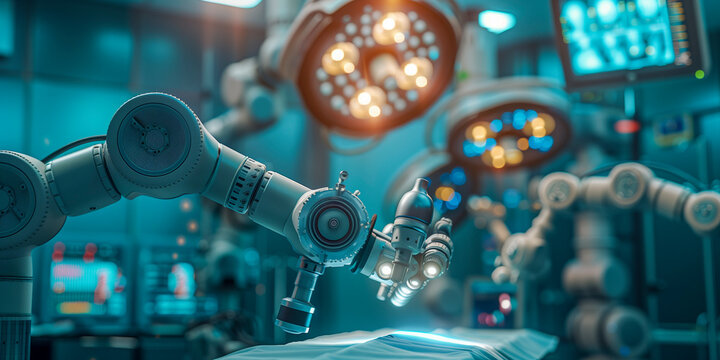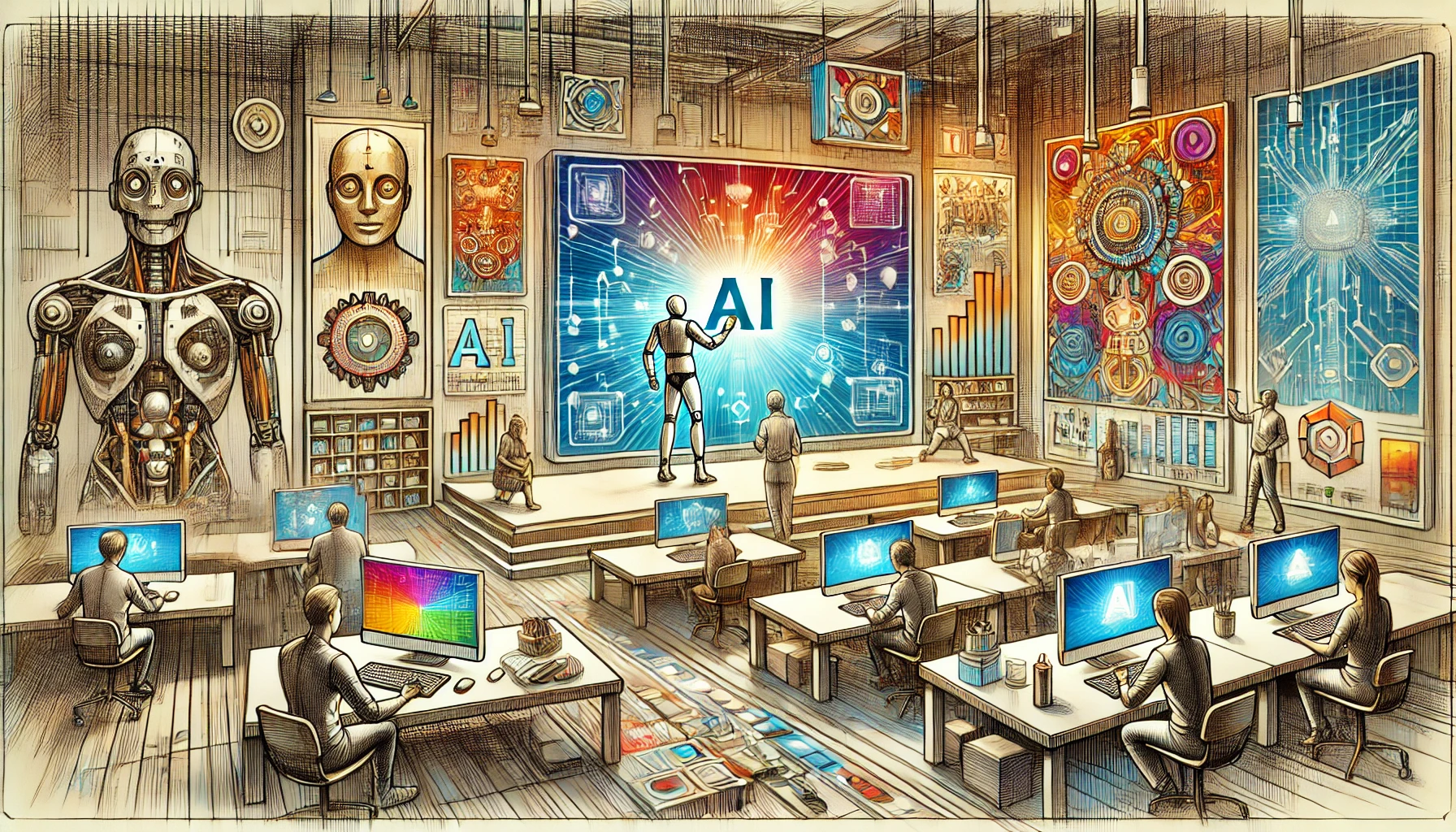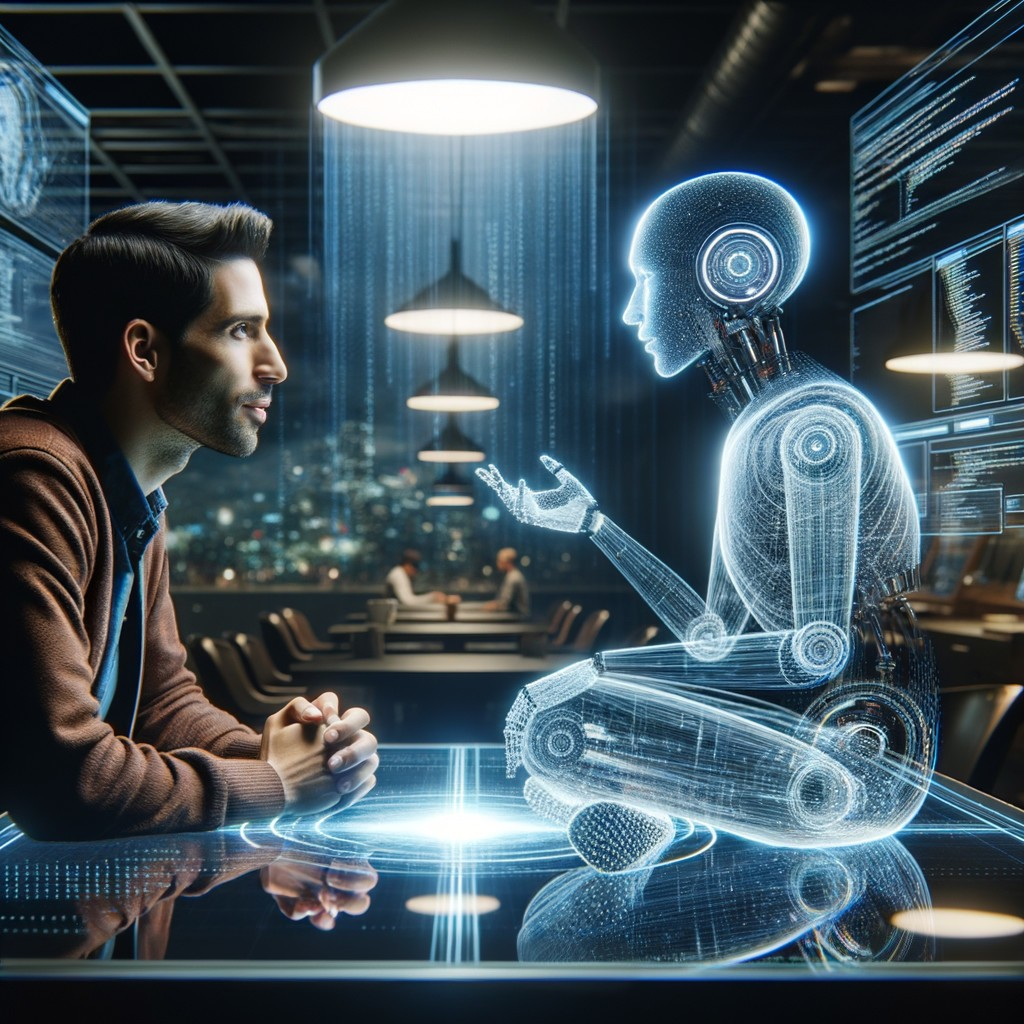Artificial Intelligence (AI) is reshaping the world as we know it, becoming an integral part of industries, businesses, and daily life. The future of artificial intelligence holds promises of groundbreaking advancements, offering solutions to global challenges while raising ethical and societal questions. This article delves deep into the current trends, future possibilities, and potential roadblocks in the journey of AI.
What is Artificial Intelligence?
Artificial Intelligence refers to the simulation of human intelligence by machines programmed to think, learn, and make decisions. With AI, tasks such as speech recognition, problem-solving, and data analysis are becoming faster and more accurate. But the future of artificial intelligence is not just about automation—it’s about transforming industries and enriching human lives.
Key Trends Shaping the Future of Artificial Intelligence
1. AI in Healthcare
One of the most promising applications of AI is in the healthcare sector. The future of artificial intelligence in medicine includes predictive analytics, robotic surgeries, and virtual health assistants.
- Early Diagnosis: AI algorithms analyze patient data to detect diseases early, especially in areas like cancer and cardiovascular conditions.
- AI-Powered Drug Discovery: With AI, the process of developing drugs is expedited, saving time and reducing costs.
- Robotic Surgeries: AI-assisted robots provide precision and minimal invasiveness in surgical procedures.
For example, IBM Watson Health has revolutionized patient care by analyzing large datasets to recommend personalized treatments.

2. The Role of AI in Autonomous Vehicles
Self-driving cars are an iconic symbol of AI innovation. Companies like Tesla, Waymo, and Uber are leading the charge in autonomous driving technology.
- Accident Reduction: AI-powered sensors and algorithms make real-time decisions, minimizing human errors.
- Traffic Optimization: AI systems analyze traffic patterns to reduce congestion and fuel consumption.
- Commercial Use: Beyond personal use, AI-driven trucks are transforming logistics and delivery services.
The future of artificial intelligence in transportation is set to redefine mobility, making it safer and more sustainable.

3. AI in Smart Cities
AI is at the core of smart city initiatives worldwide, aiming to improve urban living.
- Energy Efficiency: AI systems monitor electricity consumption to optimize energy use.
- Real-Time Monitoring: Smart traffic lights and AI-powered surveillance enhance safety and traffic flow.
- Public Services: AI chatbots handle citizen queries, streamlining administrative processes.
As cities become more crowded, the future of artificial intelligence will focus on creating sustainable and efficient urban spaces.
4. Personalized Learning with AI in Education
Education is undergoing a massive transformation with AI, offering tailored learning experiences for students.
- Adaptive Learning Platforms: AI systems assess individual learning styles and adjust depobos content delivery.
- Virtual Tutors: AI chatbots provide instant assistance, making education accessible anywhere.
- Automated Assessments: Teachers save time with AI tools that evaluate and grade student performance.
The future of artificial intelligence in education ensures that learning is inclusive, adaptive, and accessible for everyone.
5. AI-Powered Creativity
While creativity was once considered uniquely human, AI is now making significant strides in art, music, and writing.
- Art Generation: AI tools like DALL·E and DeepArt create stunning visuals.
- Music Composition: AI-powered platforms compose melodies tailored to listener preferences.
- Content Creation: AI tools generate blog posts, marketing materials, and even screenplays.
In the future of artificial intelligence, human creativity will collaborate with AI to unlock new possibilities.

Ethical Challenges in the Future of Artificial Intelligence
While the benefits of AI are immense, its rapid growth raises ethical and societal concerns:
- Bias in Algorithms: AI systems can unintentionally reinforce societal biases if trained on unbalanced data.
- Job Displacement: Automation may lead to significant job losses across industries.
- Privacy Concerns: AI relies heavily on data, raising questions about user privacy and data security.
- Accountability: Deciding who is responsible for AI-driven decisions remains a legal and moral challenge.
The future of artificial intelligence must address these issues to ensure its development aligns with ethical values.
Emerging Technologies Influencing the Future of Artificial Intelligence
1. Quantum Computing
Quantum computing combined with AI can exponentially increase data processing capabilities, solving problems that traditional computers cannot.
2. Edge AI
Edge AI processes data locally rather than relying on cloud computing, making AI applications faster and more efficient.
3. Natural Language Processing (NLP)
Advancements in NLP will enable AI to understand and generate human-like conversations, enhancing tools like chatbots and virtual assistants.
Insights into the Future of Artificial Intelligence
- AI for Environmental Sustainability: AI can monitor deforestation, predict natural disasters, and optimize resource usage.
- AI in Space Exploration: NASA is leveraging AI for autonomous space missions and analyzing cosmic data.
- Collaborative AI: Future AI systems will work alongside humans, augmenting rather than replacing human capabilities.
The future of artificial intelligence is filled with limitless possibilities, provided we harness its potential responsibly.
The future of artificial intelligence is not a distant dream; it’s happening right now. From healthcare and education to transportation and urban planning, AI is poised to revolutionize every aspect of our lives. By addressing its ethical challenges and leveraging emerging technologies, we can shape a future where AI serves as a force for good.
Read More:- Tumis Jamur: Hidangan Praktis yang Lezat dan Sehat





